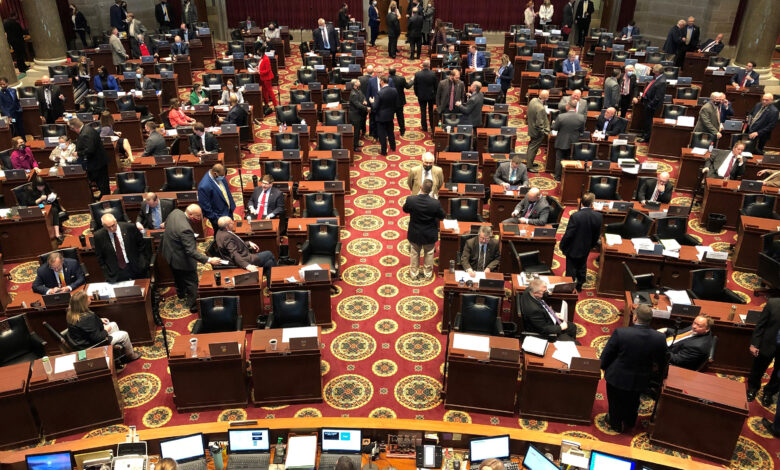Missouri house votes to ban diversity spending in Government

JEFFERSON CITY, Mo. (AP) — Missouri’s Republican-led House on Tuesday voted to ban state government spending on diversity, equity and inclusion, including at public colleges and universities.
During work on the state budget, lawmakers voted to prohibit government funding from paying for staff, vendors, consultants and programs “associated with diversity, equity (and) inclusion.”
Bans on diversity spending for every state agency are expected to be proposed as the House debates the state budget through the night Tuesday.
Under the proposed restrictions, state spending would be banned from going to initiatives that promote “collective guilt,” “the concept that disparities are necessarily tied to oppression” and “intersectional or divisive identity activism,” among other concepts.
Republican Rep. Doug Richey, of Excelsior Springs, pushed to add the prohibitions on diversity spending to every bill in the extensive budget package, arguing that the concepts are neo-Marxist and racist ideas.
“We can be respectful and accommodating without it,” Richey said of policies on diversity, equity and inclusion.
Democrats called the bans racist and prejudiced.
“This amendment is very dangerous,” St. Louis Democratic Rep. Marlene Terry said. “It’s taking us back to the Jim Crow laws. We need to pay attention.”
House lawmakers also on Tuesday voted to strip all state funding from public libraries.
Republican House Budget Chairman Cody Smith last week cut the roughly $4.5 million in public library funding from the budget, citing a lawsuit by two library groups to overturn a new Missouri law that bans sexually explicit material in school libraries.
The ACLU, the Missouri Association of School Librarians and the Missouri Library Association in February asked the Circuit Court in Kansas City to find the law unconstitutional or clarify how and when it applies.
Smith has said the state shouldn’t subsidize the lawsuit by giving public libraries money.
The law, passed last year, does not apply to written descriptions of sex or sexual acts; only photos, drawings, videos and other visual depictions are prohibited.
Librarians and other school officials face up to a year in jail or a $2,000 fine for violating the policy, which makes it a crime to provide minors with sexually explicit visual material. Exceptions are provided for works of art, science classes and other educational courses.
“Who do we want to be in here?” Merideth asked colleagues on the House floor. “The ones banning books and defunding public libraries when they dare to question whether that was constitutional?”
Republican Rep. Dirk Deaton, of Noel, defended the law and the decision to strip public library funding in response to the lawsuit.
“It’s been said this is a book ban. This is not that,” Deaton said. “It is protecting innocent children.”



